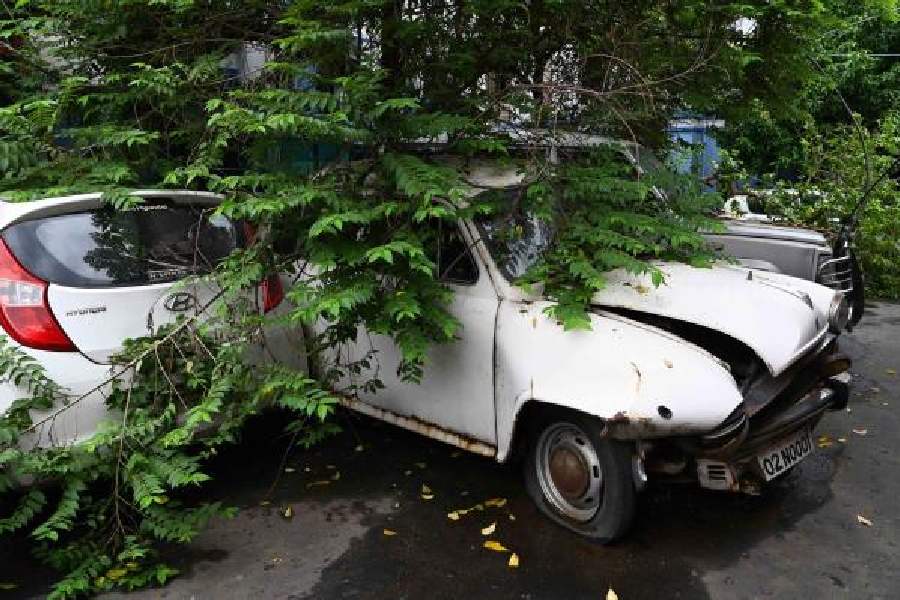Mayor Firhad Hakim on Wednesday wrote to Kolkata’s police commissioner Vineet Goyal requesting him to “direct all the police stations to remove the condemned cars in a bid to control mosquito breeding”.
This is the second letter in seven months that the mayor has written to the police commissioner with the same request.
Condemned cars are the ones seized by the police that lie outside police stations for months, an official in the mayor’s office said.
The Telegraph has read Hakim’s letter to Goyal on Wednesday.
The letter starts by referring to the previous one he wrote to Goyal on November 18. “You were requested to direct all police stations under your control to remove condemned vehicles impounded at various police stations and keep the place clean to prevent breeding of mosquitoes and mosquito-borne diseases.”
Hakim referred to the presence of cars outside police stations even now.
The police should also “check the roofs of police stations as well as surrounding places for any stagnant water as mosquitoes lay eggs on this stagnant water only”, the letter said.
“Turning over or removing clay pots and plastic containers and keeping the places clean may ward off the possibility of breeding mosquito larvae,” it said.
Goyal did not respond to a WhatsApp message from this newspaper seeking to know what steps the police had taken to remove the seized cars.
The Telegraph reported on Thursday that it found cars lying idle outside at least three police stations in the city — Topsia, Bhowanipore and Ballygunge. Water had collected in the dents and depressions on the exteriors of the seized vehicles.
There were about 20 seized cars outside the Ballygunge police station, some of them with broken windshields.
The cars outside Topsia police station were covered with plastic sheets but depressions had formed in the sheets and rainwater had collected in them.
A KMC official said the police had wrapped the seized cars with plastic so water cannot accumulate in the vehicles and two-wheelers but depressions in the sheets could also lead to water accumulation.
“One has to be very careful. Even 1cm of water that remains stagnant for at least seven days can give birth to mosquitoes that cause dengue,” said an entomologist.
The World Health Organisation has stressed source reduction to combat dengue. The WHO’s website says: “The best preventive measure for areas infested with Aedes mosquito is to eliminate the mosquitoes’ egg laying sites – called source reduction. Lowering the number of eggs, larvae and pupae will reduce the number of emerging adult mosquitoes and the transmission of the disease.”
Civic officials admitted there were still many vacant plots where solid waste had accumulated. The waste almost always has cups and containers that can turn into sources of mosquito breeding.
A KMC official said their field workers have found that the police have removed seized cars from outside several police stations but such cars were still lying outside a number of others.
The official in the mayor’s office said Hakim would also write to the railways about one of its properties in south Kolkata that has piles of garbage lying on it. “Our health department issued a notice to the railways earlier to clean this property. The mayor will now write to them,” said the official.
